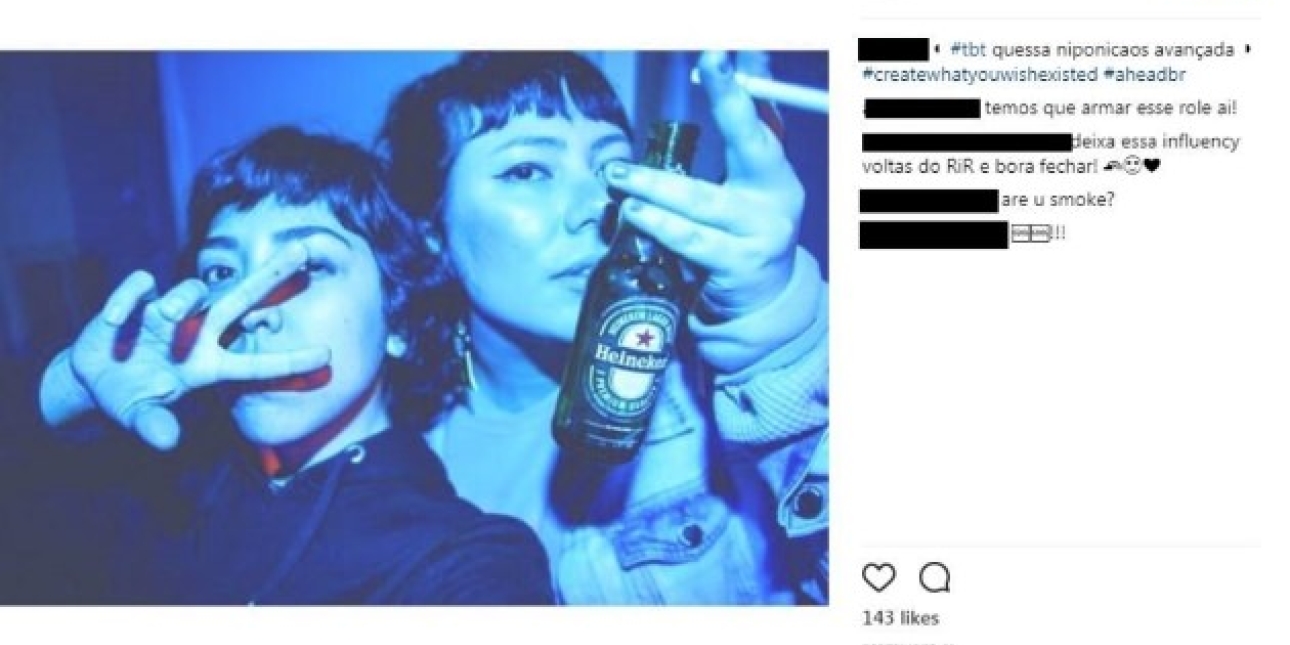PUBLIC RELATIONS
Monday 3rd September 2018
Covert tobacco influencer marketing targets young, report claims
Tobacco companies are secretly promoting cigarettes via social media influencers, according to a new report. Following a two-year investigation by the Campaign for Tobacco-Free Kids and Netnografica LLC, a U.S.-based consumer research and consulting firm specialising in online research, the findings have just been published online.
The investigation documents more than 100 social media campaigns by multinational tobacco giants Philip Morris International, British American Tobacco, Japan Tobacco International and Imperial Brands.
The tobacco companies secretly partnered with social media influencers to post images of cigarettes and smoking as part of their marketing strategies across 40 countries - according to the findings.

Image from https://www.takeapart.org/wheretheressmoke/gallery/
Probe into tobacco influencer marketing
Key findings from the investigation include:
- Tobacco companies seek out young people who have significant numbers of followers online and pay them to post photos featuring Marlboro, Lucky Strike and other cigarette brands.
- Social media influencers are trained on what cigarette brands to promote, when to post pictures for maximum exposure and how to take "natural photos" that do not look like staged advertisements. In Italy, influencers paid to promote Lucky Strike cigarettes were instructed to make sure health warnings on cigarette packs were not visible in photos posted online.
- Tobacco companies organize parties and contests with cigarette brand sponsorships and encourage participants to post on their social media accounts.
- Influencers are instructed to include specific hashtags promoting cigarettes on social media posts.

Image from https://www.takeapart.org/wheretheressmoke/gallery/
Tobacco influencer marketing against policy
It is likely these tobacco firms’ influencer marketing campaigns circumvent – and may violate – the policies of social media platforms like Facebook and Instagram that do not allow paid advertising for tobacco products on their sites.
The tobacco firms’ influencer marketing campaigns also appear to run contra to the cigarette companies’ own internal marketing standards. An extract from British American Tobacco’s International Marketing Principles [opens as a PDF] reads:
“We will not engage in any viral marketing in openly accessible on-line or other digital networks where it is impossible to control the integrity of the message nor the recipients it might reach.
“We will not engage in any ‘covert’ advertising… unless it is made clear at all times that the activity is tobacco advertising… Unless this kind of activity takes place at points of sale or out of home (where age verification is not possible) the intended audience must be restricted to verified adult smokers.”
The investigation's report also includes excerpts of confidential and anonymous interviews of influencers paid by tobacco companies or their agents in Brazil, Italy, and Uruguay:
“Lucky Strike chooses a number of persons that sponsor their cigarettes. [My friend REDACTED] has to post 3 pictures a week and the pack of cigarettes has to appear in them, followed by the tags #Lus and #Like_Us Party. There are lots of people that do it and they are given 200 € a month and 2 cartons of cigarettes [each carton has 10 packs in it]. . . they only choose persons with an important number of followers.” • “Interviewer: When you post, do you think your followers know what you’re talking about? Interviewee: No… only that I think that is precisely what Souza Cruz [BAT subsidiary in Brazil] wants. They want to show people who are normal, decent, cool, and even so they smoke.”
Further reading
- http://wheretheressmoke.social/resources
- Big Tobacco used social influencers to target young people, investigation finds
- https://www.tobaccofreekids.org
- Campaign for Tobacco-Free Kids: New Investigation Exposes How Tobacco Companies Market Cigarettes on Social Media in the U.S. and Around the World
Influencer images courtesy of Where There's Smoke, featured image courtesy of Mathew MacQuarrie on Unsplash
Read Original Post
